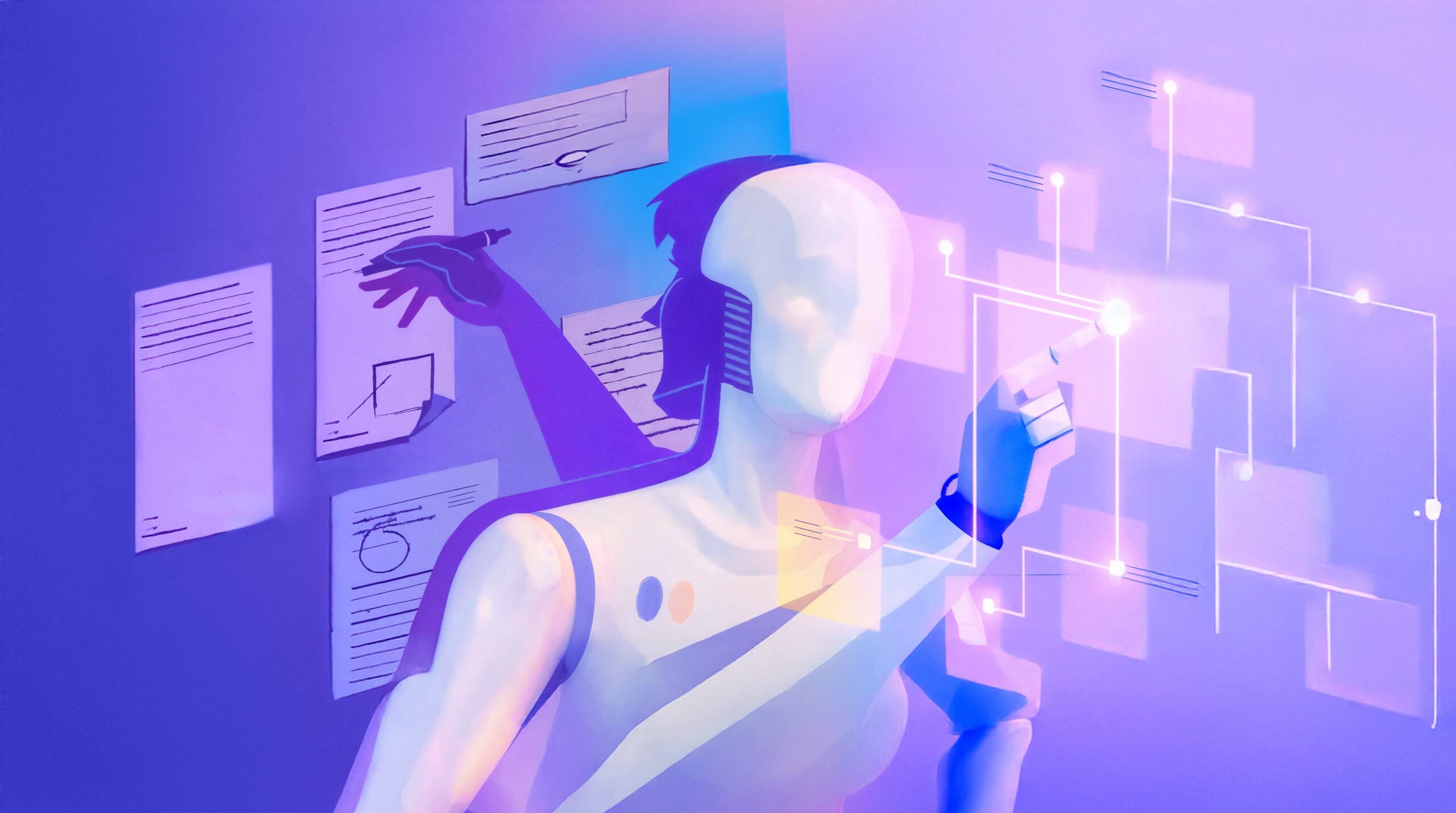Economy + Geopolitics, Trends
Originally published in the November issue of the Smart Signals newsletter.
AI is transforming business faster than analysis can keep up. Between breathless hype and apocalyptic warnings, what’s missing is clarity.
Smart Signals is a quarterly series built to close that gap. This first issue opens up the question: How is AI reshaping our relationship with work?
Guided by data, lived experiences, and policy insight, we explore how work is changing because we believe that navigating the future of business isn’t about waiting for the dust to settle. It’s about learning to see through it.
The takeaway
Future of Job Report 2025-26
As 2025 draws to a close, the world of work remains in flux — driven by generative AI, economic shifts, and deep societal transformation. The World Economic Forum’s Future of Jobs Report 2025-26, now in its fifth edition, draws on insights from more than 1,000 companies representing 14 million workers across 22 sectors and 55 countries.
Developed with partners such as LinkedIn, Coursera, and Indeed, it offers unmatched clarity on evolving skills, emerging roles, and opportunities through 2030.
We read and analyzed all 290 pages of the Report. Here are our takeaways.
The Main Drivers of Change Between 2025 and 2030
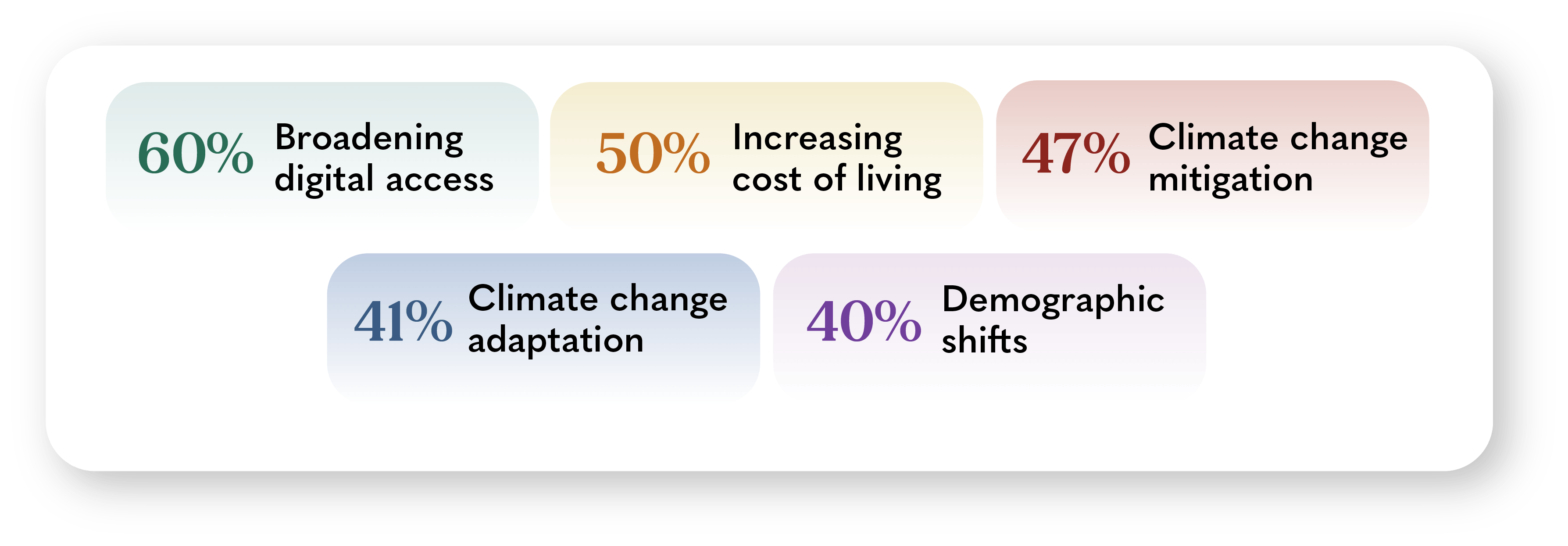
Additionally, geoeconomic fragmentation and geopolitical tensions are expected to transform business models in 34% of organizations, with trade restrictions and industrial policies reshaping operations, particularly for economies with significant trade ties to the US and China.
The AI Revolution: By the Numbers
As we could expect, technology will be the most disruptive force in the labor market, outpacing all other macrotrends.

Job Creation vs. Job Displacement: The Full Picture
Between 2025 and 2030, 22% of today’s total jobs will be transformed through creation and destruction:
- 170 million new jobs created (14% of current employment)
- 92 million jobs displaced (8% of current employment)
- Net growth: 78 million jobs (7% of total employment)
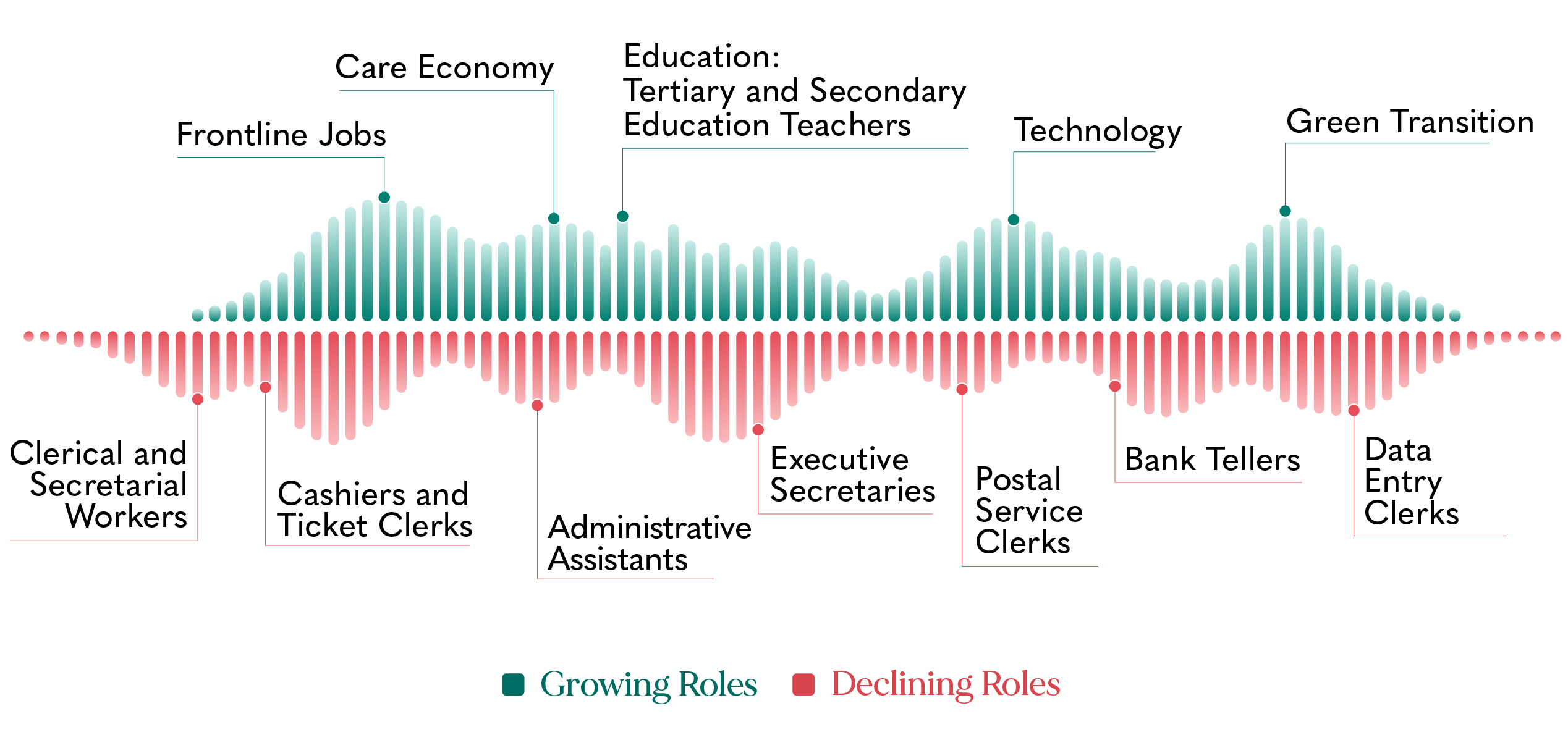
The Skills Revolution: What’s Changing
39% of workers’ existing skills will be transformed or become outdated by 2030. Good news: this represents a stabilization compared to 44% in 2023 and 57% in 2020.
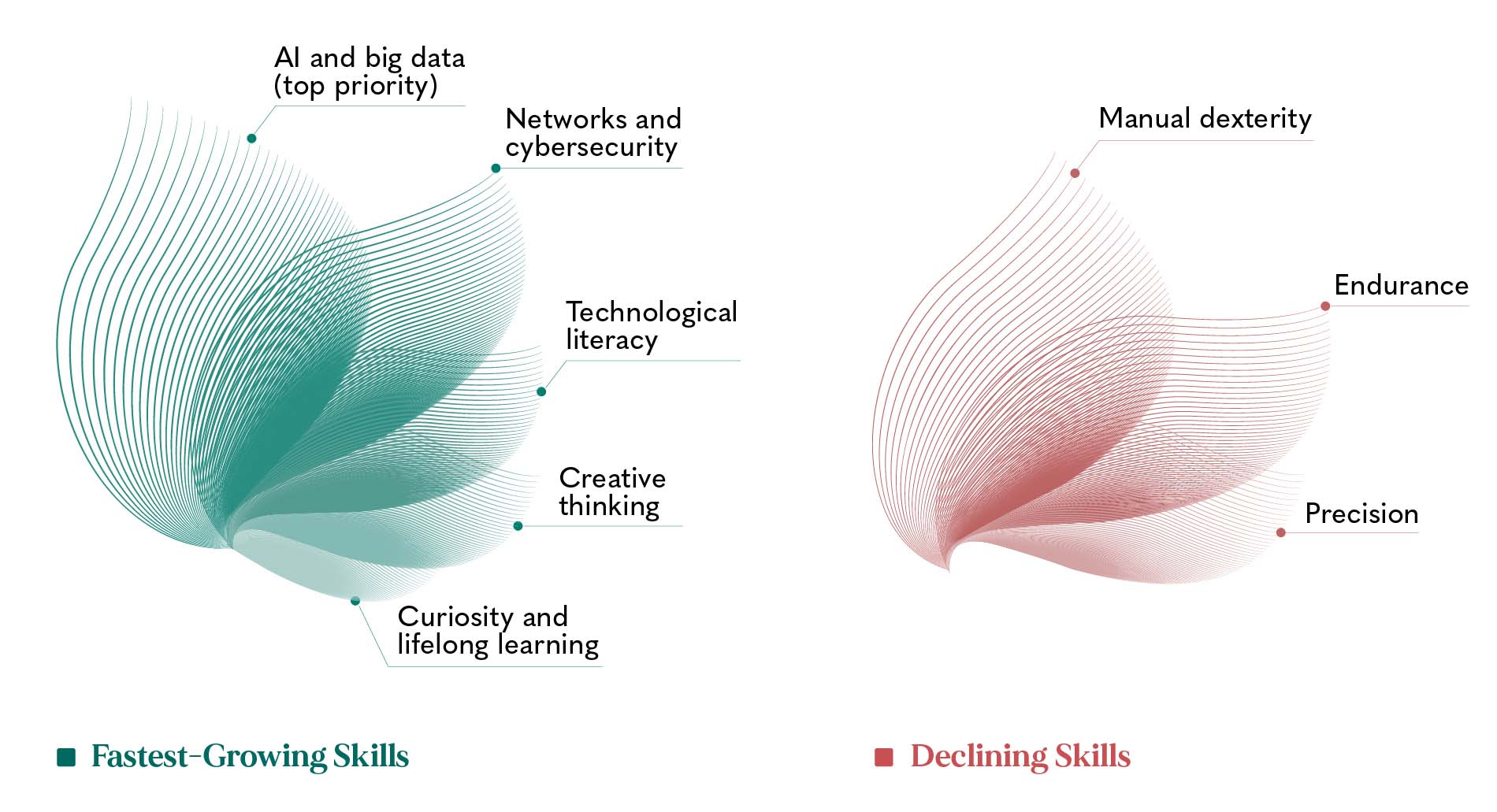
The Human-Machine Balance
By 2030, these proportions will shift toward an almost even split between human, machine, and hybrid approaches. This isn’t about automation replacing humans – it’s about augmentation: technology designed to complement and enhance human capabilities.

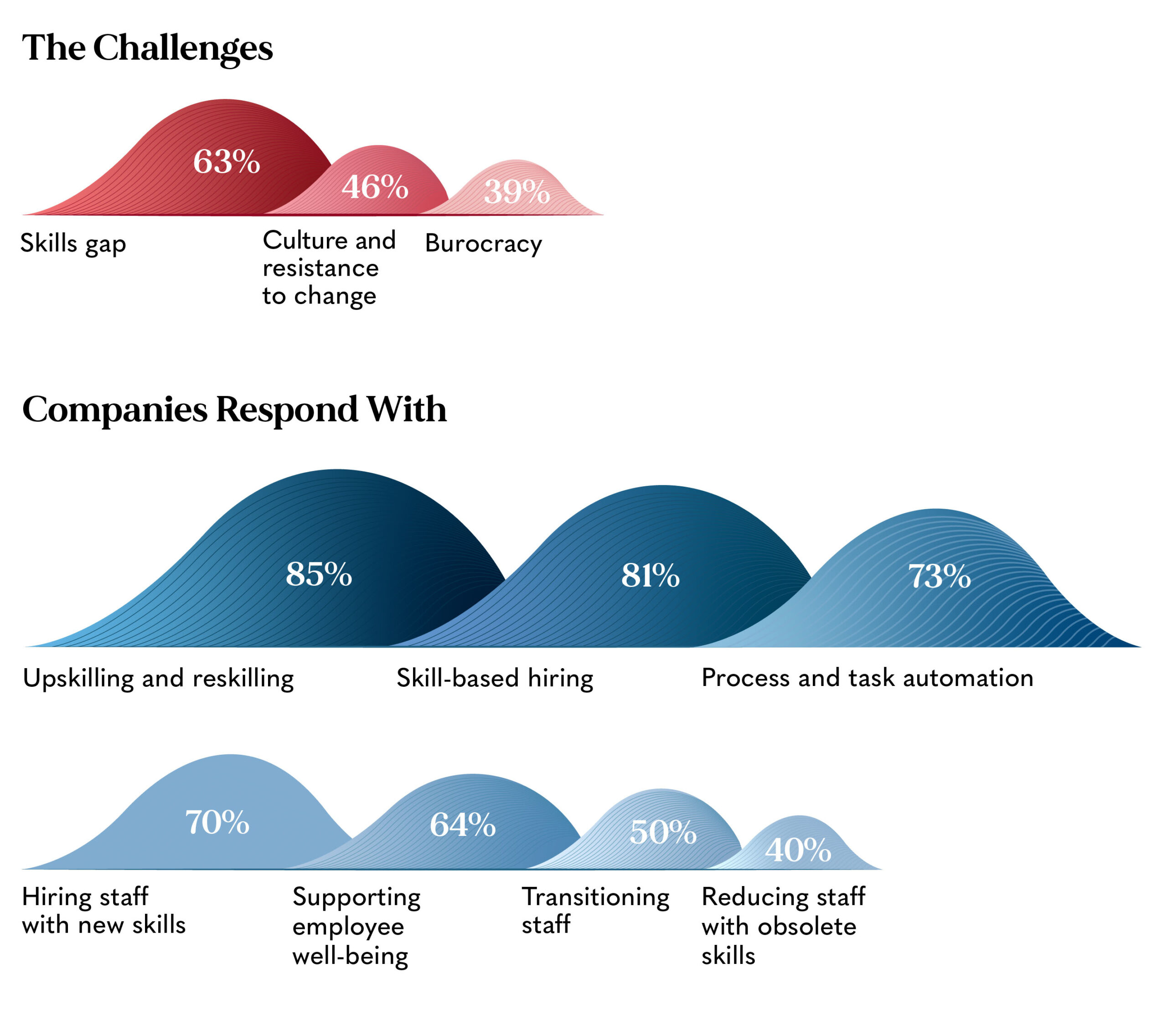
The New Focus: People First
Wages & Investment in people: training is now permanent strategy, not occasional initiative

People are adapting, experimenting, and pushing boundaries—now let’s see how policy is responding.
Policy Watch
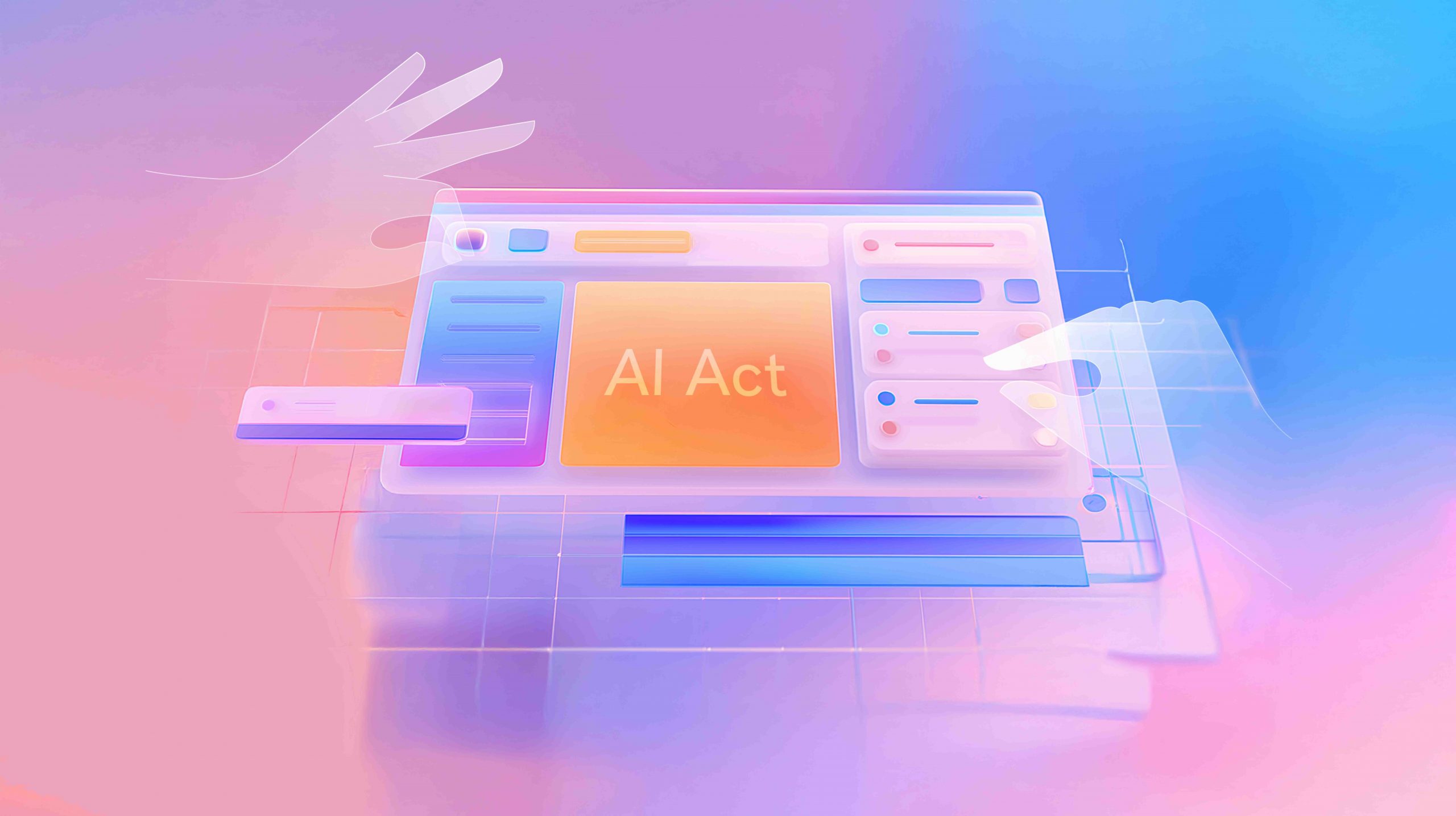
The EU AI Act
How It Will Change Your Job
On March 13, 2024, the European Parliament formally adopted the EU Artificial Intelligence Act in a landslide victory: 523 votes in favor, only 46 against. This is the world's first comprehensive horizontal law governing AI — and it's expected to become the de facto global standard for AI regulation. If your company uses AI this law applies to you. Even if you're not based in the EU.
Read our analysis herePolicy aims to shape the rules of work, but other forces are driving bigger changes.
The big picture
Beyond AI: Who’s Entering the Work Market?
AI may be transforming the way we work — but demographics are redefining who works, where, and for how long we stay in the workforce.
While the West and parts of Asia grapple with an unprecedented birth crisis and an aging population, the Global South is experiencing the opposite: an explosion of young, tech-savvy talent ready to dominate the next era of labor and innovation.
The math is unforgiving. Fewer births mean fewer future workers and soaring social costs for aging economies. That’s pushing the North to embrace AI faster. Meanwhile, Africa, India, and Latin America are emerging as global workforce hubs — exporting ambitious professionals across borders, unless immigration policies block the very talent the North urgently needs. At the same time, remote work and thriving local ecosystems are empowering the Global South to build their own economic engines — and keep their best minds home.
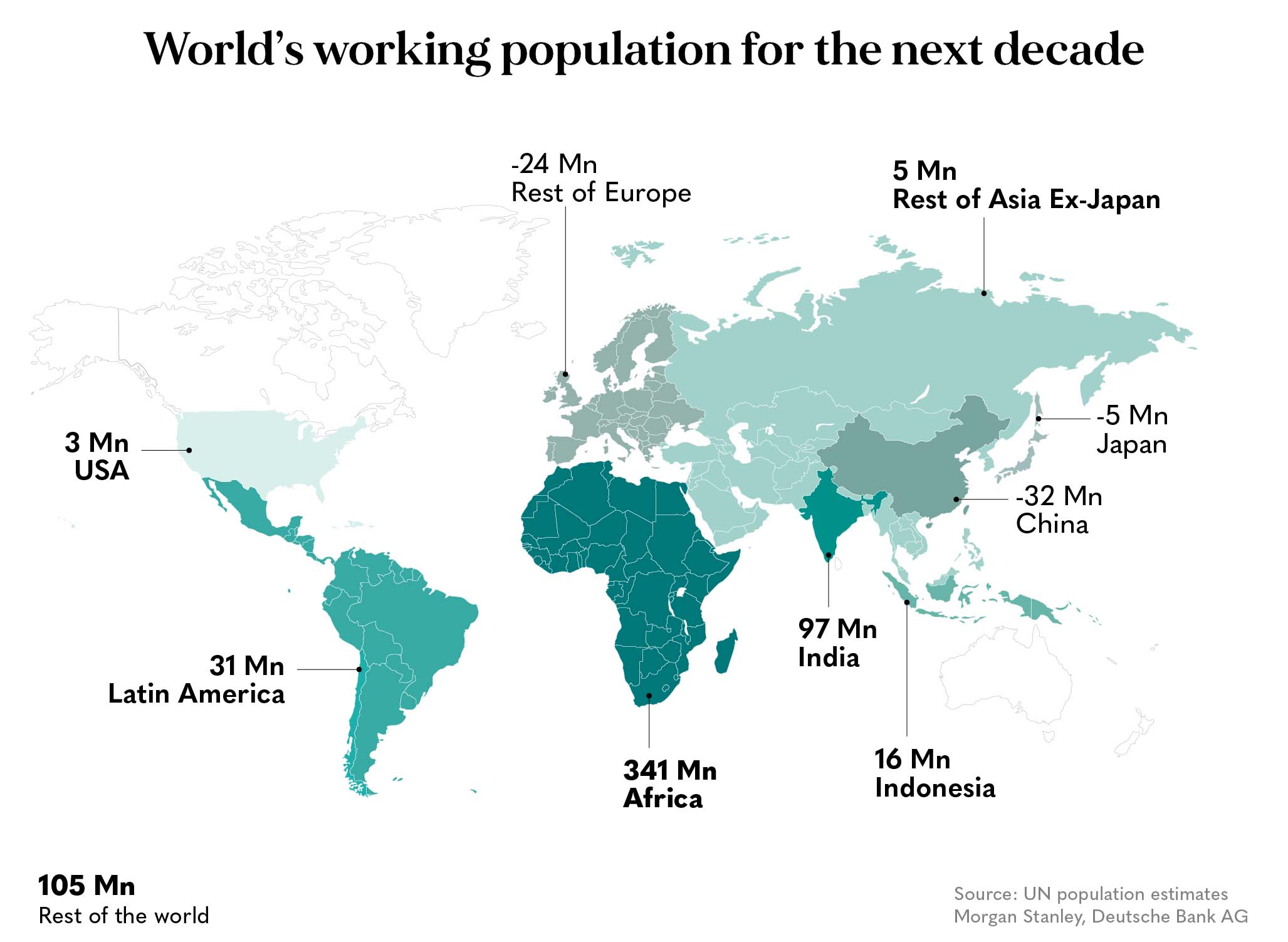
We’ve gathered the signals—now it’s time to understand what they really mean.
Connecting the dots
What Does All This Mean?
AI isn’t replacing us but redefining what matters.
As technology takes over what can be automated, the real value of work is shifting toward what can’t: judgment, creativity, empathy, care. The challenge ahead isn’t learning to work like machines, but remembering how to stay human while we do it.
Numbers tell part of the story: the World Economic Forum predicts a net gain of 78 million jobs by 2030. Yet the deeper shift is qualitative. If AI can do much of what we once did, the true question becomes: what do we choose to value in work?
This is a question schools, universities, and organizations must grapple with. Not by training people for standardized tasks, but by cultivating what machines cannot replicate: critical thinking, ethical reasoning, and the ability to navigate uncertainty.
That’s why adaptability has become infrastructure. Yet our societies still treat upskilling as a personal responsibility rather than a collective one, leaving one in nine workers without the training they need. That’s not a failure of individuals; it’s a policy gap. Europe’s answer has been regulation. The Global South’s response has been reinvention — building new labor markets around youth, technology, and ambition.
The forces converge: demographic shifts are redrawing where work happens, and AI is redefining how. And as work keeps evolving, the advantage won’t come from technology. It will come from the human skills we choose to nurture and value.
Looking for more? Our editorial team has a few recommendations:
A report from Anthropic
An article from The Guardian
A video from Financial Times
